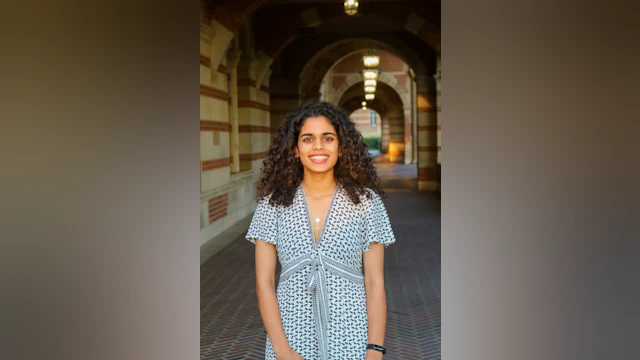Imagine this: Your parents and their families immigrated to the U.S. from India – taking a plane for the first time and traveling over 8,000 miles when they were barely teenagers. They experienced a harsh culture shock moving to a new place they had to call “home.” My family found it difficult (and still does) to merge Indian culture with the cultural practices of America. When it came to mental health, it was especially challenging.
Being raised by immigrant parents shaped the conversations around mental health that we had as a family. I’m an Asian-Indian woman and mental health is not talked about openly in my culture. Mental health, as a concept overall, is generally seen as taboo. Individuals who experience mental challenges are often labeled as weak. Psychiatric medication is seen as a crutch. If you are depressed or anxious, you are often encouraged to just “go on a run” or “meditate.”
There was a sense of unfamiliarity within my family when talking about mental health; it felt awkward to talk about mental struggles. There isn’t even a word for “stigma” in Hindi. It’s really hard to explain something in a language when you literally don’t have the words for it. It made navigating conversations about mental health very difficult for my family and me. It was hard for them to understand why I wanted to talk about the struggles I was dealing with because they’d never had those conversations before.
The first person I opened up to was my mom. I told her about episodes of anxiety I experienced in school. I was also experiencing immense feelings of hopelessness and general fatigue. At first, both my mom and I thought that what I was going through was a result of puberty and hormones. After my mental health episodes kept happening, my mom and I decided that it was time to see a psychiatrist. Once I received a formal diagnosis, what I had been feeling and going through started to make more sense. I felt validated and seen. I remember crying in my mom’s arms when I was diagnosed. During this moment, she told me that “everything is going to be okay.” I needed to hear that.
I also cried the first time I took medication because doing so pushed me to acknowledge my illness was real. I remember holding my mom, grandma and grandpa’s hand. They all said: “It’s okay, Meera.” This was an intimate moment for all of us. Even though I feared the unknown, part of me felt a sense of relief knowing that my family would be there to support me no matter what.
When talking to my family about mental health, it was easier for me to share my feelings by showing educational YouTube videos that explained mental health in a digestible way. I would show my family TED-ED videos about depression and psychiatric medication because they had simple animations and narrations that made the concepts easier to grasp. For people like my grandparents – whose first language was Hindi – I made sure to put the captions in their native tongue so they could understand the videos better. Hearing explanations in your native language has a way of making the subject matter feel familiar.
Talking about mental health took a lot of patience, understanding and active listening. Through having safe and open conversations about mental health, my family was able to listen to what I was feeling and provided the help and support I needed to get better.
My mom, brother and grandparents are by far my biggest supporters to this day. The tough conversations we had about mental health fostered a deep connection between all of us and encouraged them to be open about their mental health, as well. It was beautiful to see my parents and grandparents begin to take care of their mental health through practicing self-care, being kind to themselves and validating their own feelings.
Even though it was difficult at first to open up to my family about my mental health, I’m so glad I did. It required bravery to take that first step to go against cultural norms by discussing something taboo. It took a lot of patience from my family and me.
If you are wanting to be open with your family about your mental health, I know how intimidating it can be! If you feel comfortable (and are in a safe enough environment to do so), I’d encourage you to take that bold step and start that conversation.
I learned from my experience that talking about mental health doesn’t have to be scary. It can start with “How are you?” You can let the conversation flow easily. The best thing you can do is simply be there and listen – open your mind to what your loved one is saying. Don’t try and “fix” the problem. Instead, really hear what they are saying and validate their feelings. Be a person they can turn to for support and comfort.
We all deserve to have a person in our lives that makes us feel safe.
Interested in having a #Real Conversation with the people in your life? AFSP offers tools on how to have an open, authentic conversation about mental health.
Learn more about culturally competent care and suicide prevention resources that support individuals in underrepresented communities.
